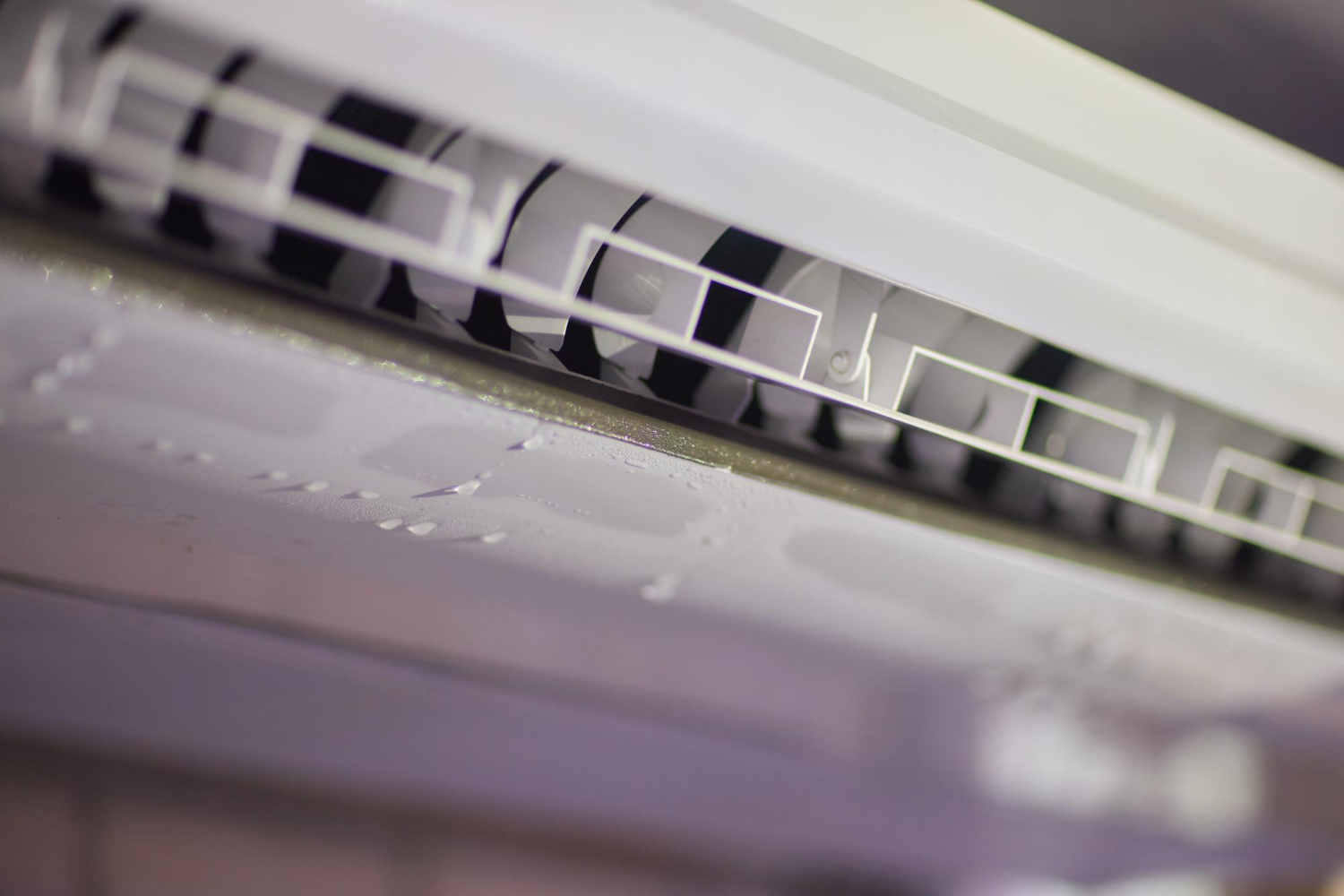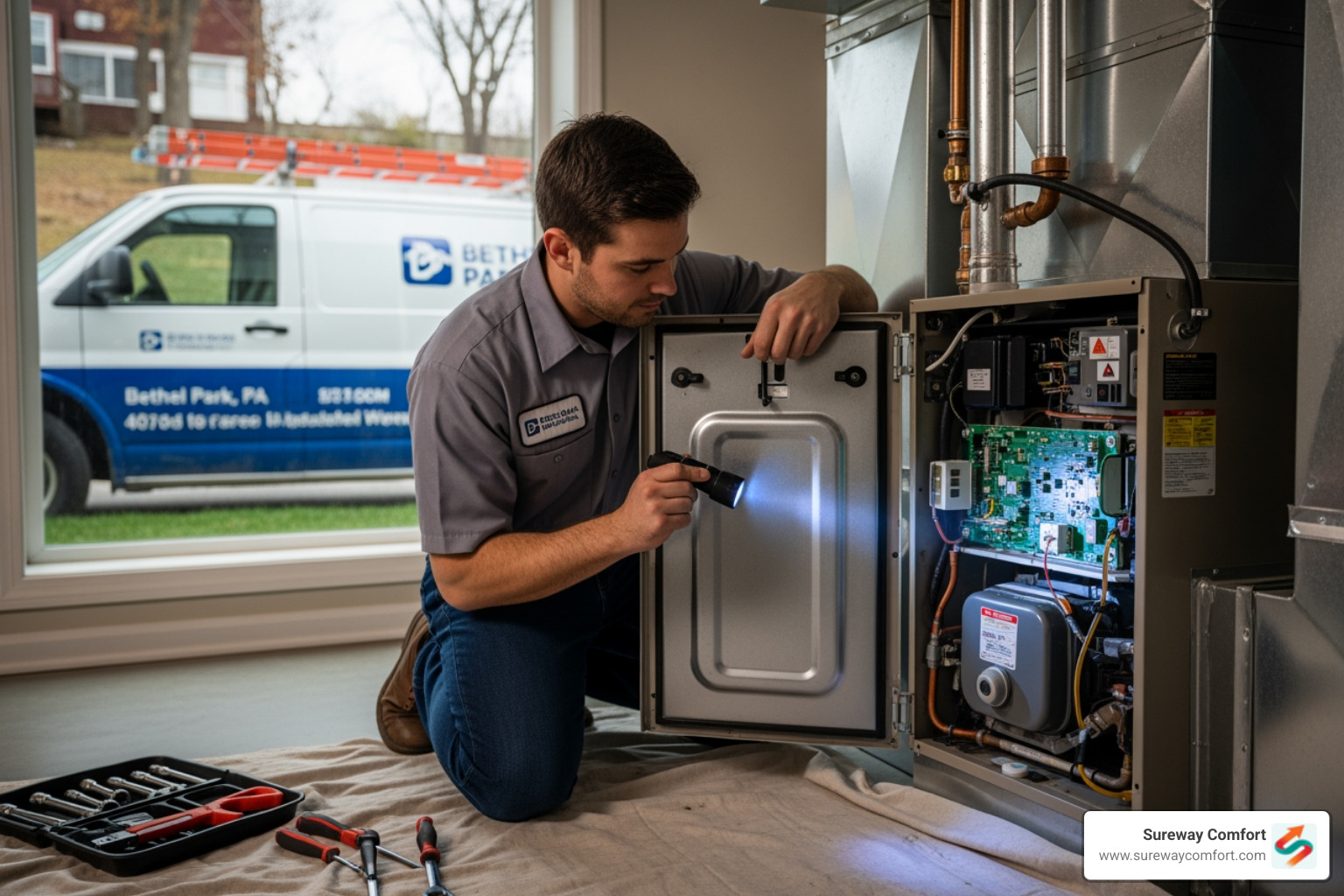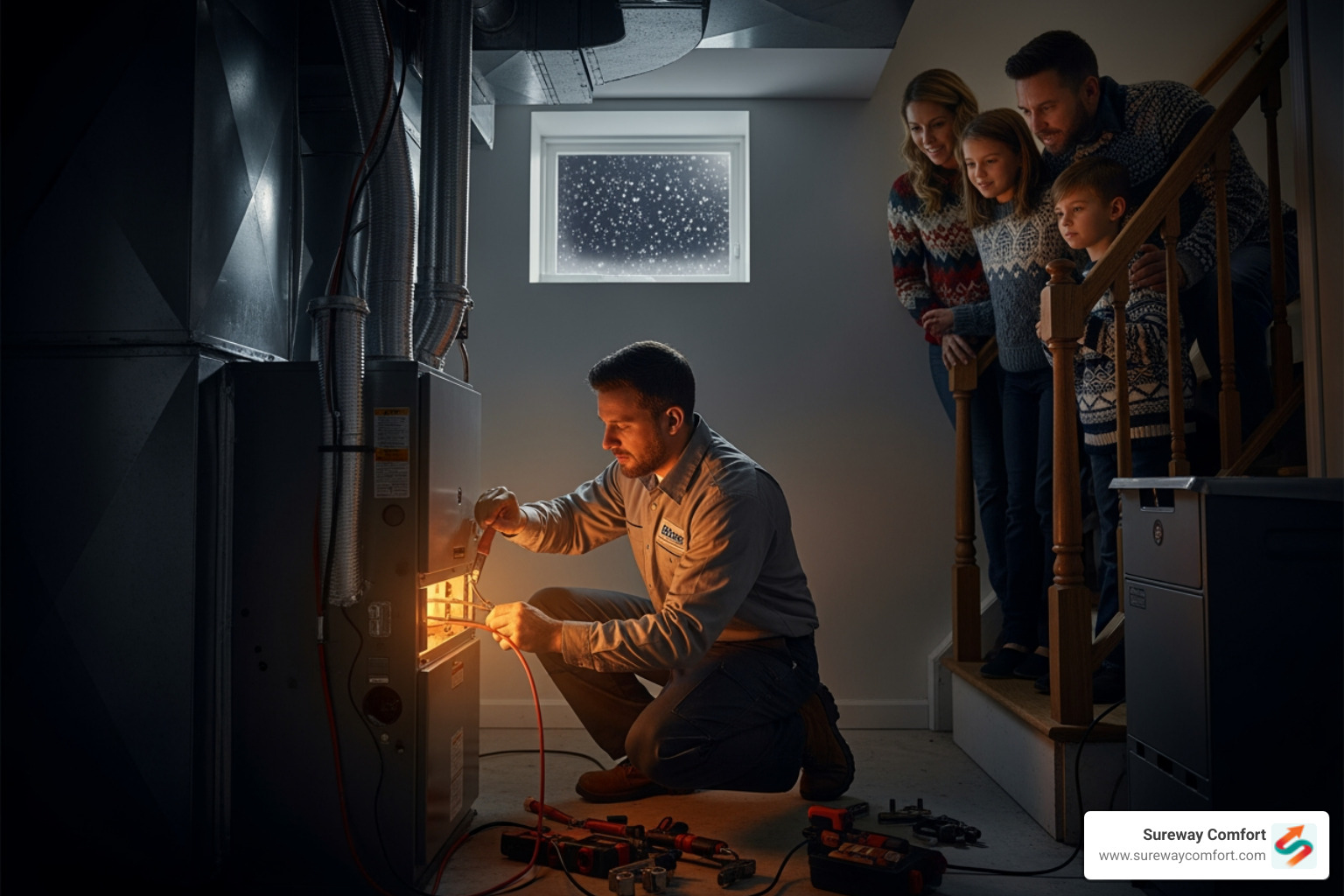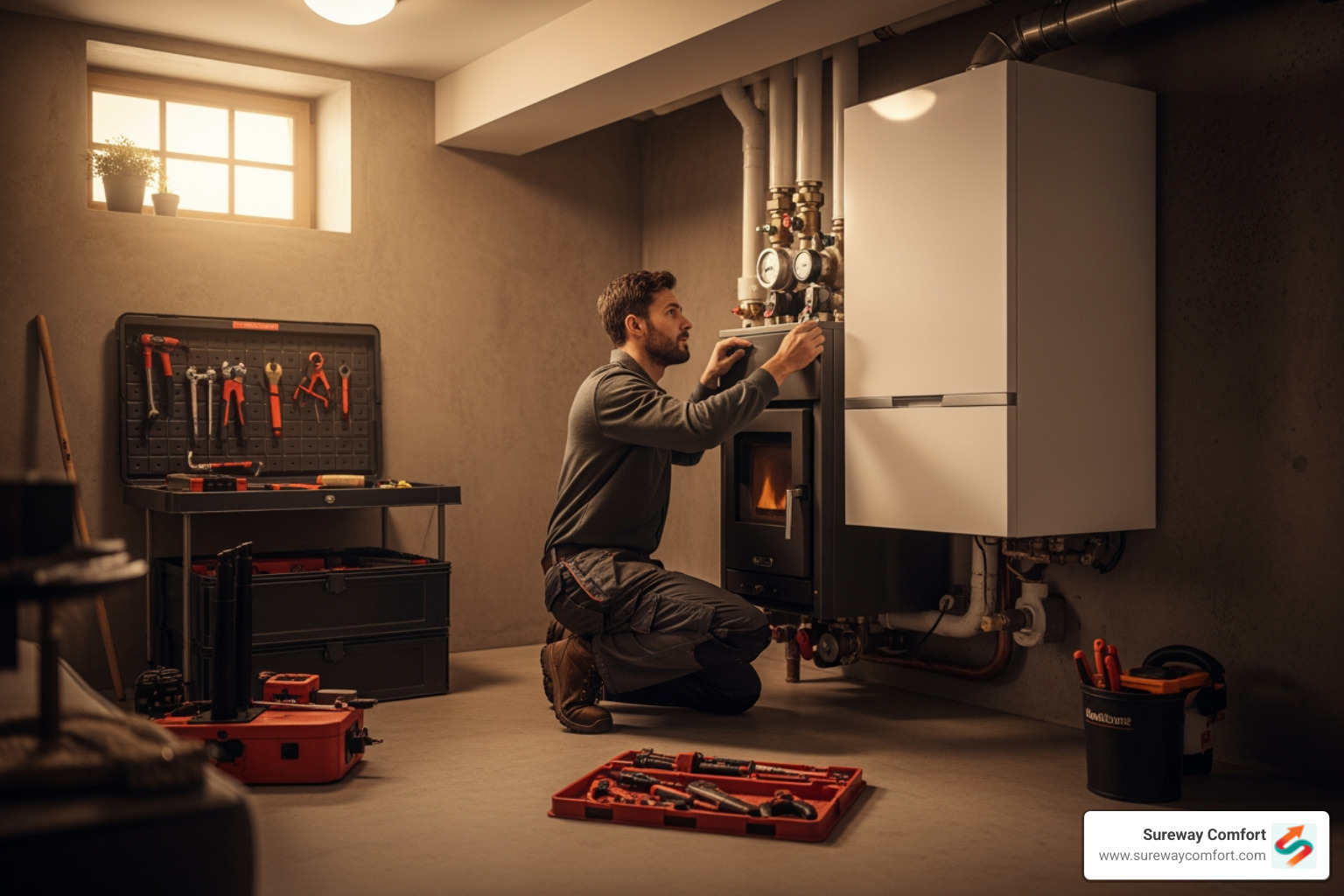If your air conditioner is running but you're noticing puddles of water or an unusual amount of dampness around your unit, that's a sign something isn't right. During the peak of summer in Mt. Lebanon, where cooling systems are working hard to manage indoor comfort, excessive condensation can become more than just a minor nuisance. It might lead to water damage, mold growth, and even performance issues with your AC. Many homeowners assume this is just a normal part of AC operation, but consistent moisture problems are usually warning signs.
Understanding why condensation builds up and how to deal with it can help prevent long-term complications in your home. Air conditioners are designed to remove humidity as part of the cooling process, but if something interferes with that system, you could be dealing with more moisture than expected. The good news is there's typically a root cause, and with a bit of attention, it can be fixed before turning into a larger issue.
Reasons Why Your AC Is Creating Excessive Condensation
It is normal for your AC to produce some condensation while operating. That is because part of its job is to extract moisture from the warm air it pulls into the system. However, too much water collecting around the unit is not part of the deal. Here are some common reasons behind it.
- Clogged drain line: Condensate drain lines carry water away from the system. If they get clogged with dirt, algae, or debris, that water has nowhere to go and ends up backing up into your home.
- Dirty air filter: A filter that is full of dust and debris can obstruct airflow. When that happens, the cold coil inside your AC may freeze up. When it eventually thaws, the excess water can create pooling around the unit.
- Low refrigerant: If your system is low on refrigerant, your evaporator coil may run too cold, leading to ice buildup. Just like with a dirty filter, once that ice melts, it can bring a wave of extra moisture.
- Broken condensate pump: If your system is installed in a basement or other space that is below ground level, a small pump usually pushes condensate up and out to a drain. If that pump stops working, the water stays put.
Humidity levels in Mt. Lebanon also play a big role. On especially humid days, your AC has to work even harder to pull water out of the air. If your system is not sized correctly for the space or is showing age, the added humidity might create more water than the system can manage on its own.
To avoid significant water damage, it helps to monitor not just the moisture around the AC, but what your indoor air feels like. If your home feels more damp or clammy than normal, that is an early signal. A well-maintained system should keep your indoor moisture in check even in humid summer conditions.
How To Identify Excessive Condensation In Your AC
It becomes a bigger problem when homeowners do not realize what is happening. A small puddle today can lead to mold behind the walls or ruined floorboards over time. Figuring out the early signs can keep your home safer and your AC from breaking down.
Here is what to watch for:
1. Water stains around your indoor AC unit or on nearby walls and ceilings
2. A consistent puddle forming near your system, especially after runs
3. Unusual smells coming from the vents, which could indicate hidden mold growth
4. Higher-than-usual indoor humidity that leaves your skin feeling damp
5. Ice collecting on the refrigerant lines or near the coil
You will usually see condensation in areas like the evaporator coil, the drain pan, the PVC drain line, or around the base of the indoor unit. These are your first places to examine if any of the signs above show up.
For example, one homeowner in Mt. Lebanon noticed their basement AC closet was damp all summer long. They thought it was a humidity issue unrelated to the system. However, an inspection found that the drain line was clogged, forcing moisture to collect and seep out slowly into the floorboard. Catching it later caused more damage than if it had been inspected and cleared during the season's start.
Taking a quick look around your system once a week during the hottest months can help you catch these issues before they become costly repairs.
Potential Solutions to Reduce AC Condensation
Condensation starts to become a problem when it is ignored or unresolved for too long. Luckily, consistent checks and handling small issues early can go a long way in avoiding moisture damage in your Mt. Lebanon home.
Start with one of the most important steps: regular maintenance. Homeowners often forget about cleaning parts of the system that are out of sight, but components like the drain line and evaporator coil directly affect how moisture is handled. When the drain line stays clear of algae and buildup, condensation flows out of the system cleanly. A clogged line leaves water with nowhere to go. Cleaning that at the beginning of each summer or having it checked by our technicians is the best way to avoid problems months later.
Air filters should be checked at least monthly during heavy AC usage. A dirty filter blocks airflow and causes the coil inside to get too cold. That can lead to ice forming on the coil, which later melts and raises moisture levels. A clean filter helps the air move properly through your system and prevents that from happening.
Proper airflow is also tied to how your home is ventilated. When your home is sealed too tight without good circulation, humidity builds up and pushes the AC system harder. Make sure vents are not blocked by furniture or rugs, and keep doors open between rooms when possible to allow air to spread and cycle more evenly.
If your system continues to produce more condensation than normal, it may be struggling to keep up with the humidity levels indoors. This could mean the AC size is not suited for your space, or it is working inefficiently due to age or poor performance. Our professionals can inspect these elements and address whether it is a repair or an adjustment that is needed.
When to Seek Professional Help
While some signs of excessive condensation are easy to notice, others are not visible until they have caused damage. If you find puddles near the unit on a frequent basis or notice that your home's humidity never drops to a comfortable level, it is probably time to call in experts.
Here is when to connect with our professionals for AC repair in Mt. Lebanon:
- You have already cleaned or replaced the air filter and the unit still freezes up
- Water keeps coming back even after you have cleared the area or dried it out
- You see mold starting to grow near the system
- The AC runs, but the indoor air stays humid
- Your unit is short-cycling or shutting off before the house cools properly
One Mt. Lebanon homeowner thought they had a water leak coming through the ceiling during the summer. But after further investigation, it turned out their attic ductwork was collecting condensed moisture due to a dirty coil and clogged drain line. The water was not coming from rain, it was their AC system. They called to schedule an inspection, and after a thorough cleaning and drain flushing, the issue stopped completely.
An expert can inspect refrigerant levels, check the drain system, test the condensate pump, and confirm the evaporator coil is functioning as it should. These are not parts of the system that homeowners are usually equipped to fix. Getting the right diagnosis early can save you from expensive repairs down the line.
Keeping Your Home Dry and Comfortable This Summer
During the hottest weeks in Mt. Lebanon, your AC works hard to maintain comfort indoors. But comfort does not just mean cool air. It also means staying dry and free from moisture damage. If your system is collecting too much condensation, it is time to get ahead of it before it turns into water-stained drywall or warped floors.
With the right care, your AC system should operate cleanly through the summer, keeping humidity under control without excess water dripping or pooling. Staying alert to the early signs and addressing problems quickly can help you avoid bigger issues. Whether it is changing filters regularly or spotting a musty smell in one room, small steps make a big difference.
If you have tried basic solutions and the condensation continues, it is likely something deeper is affecting performance. At that point, it is time for a proper evaluation. A well-maintained system should help you get through the season without worrying about water where it does not belong. Consistent attention paired with support from trained technicians can keep your Mt. Lebanon home dry, safe, and cool all summer long.
Keep your home dry and comfortable with Sureway Heating Cooling Plumbing by addressing recurring moisture issues early. If you are dealing with frequent condensation or signs that your cooling system is underperforming, professional AC repair in Mt. Lebanon can help resolve the problem efficiently. For a quick estimate or to book a service visit, please contact us today.




























.avif)



